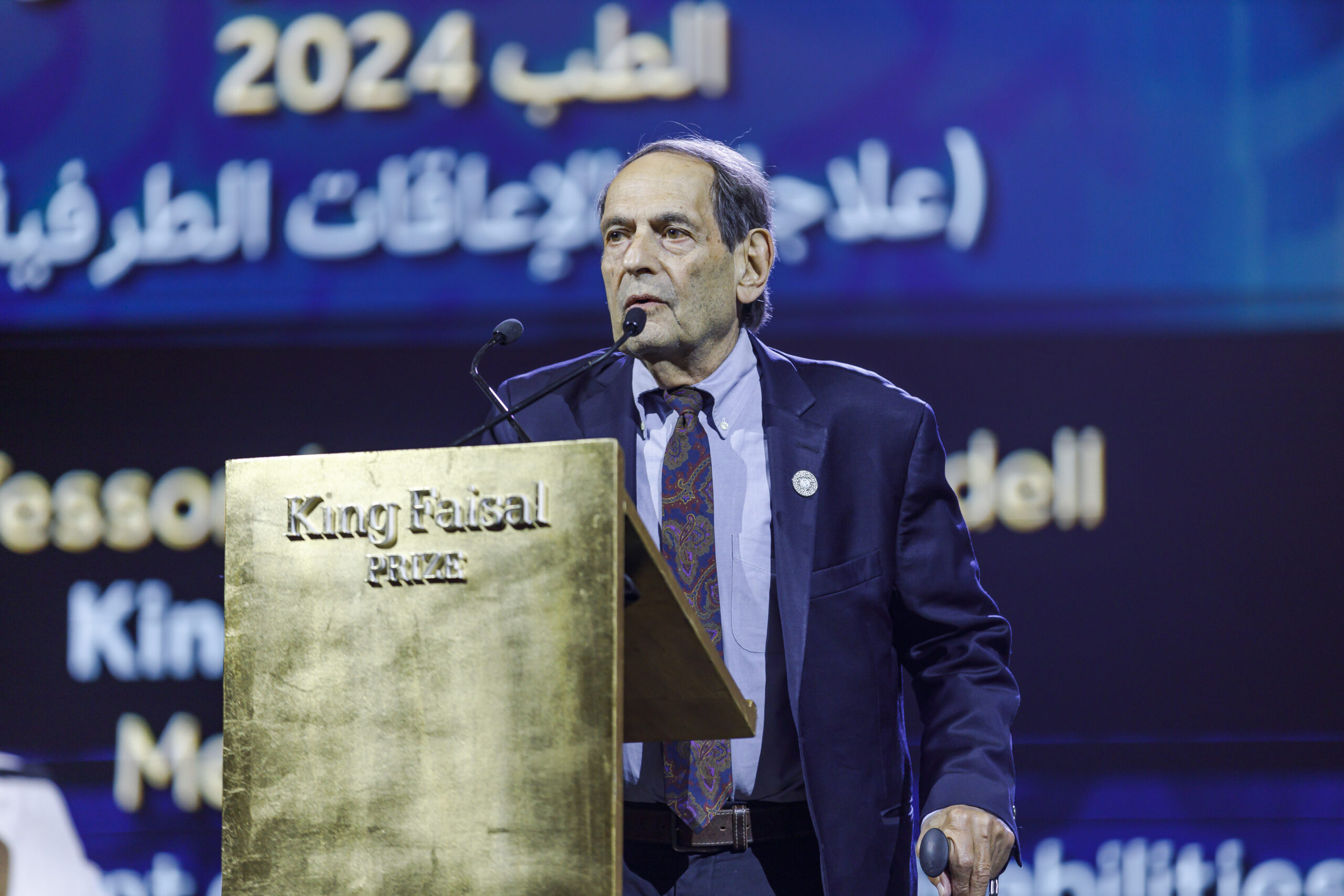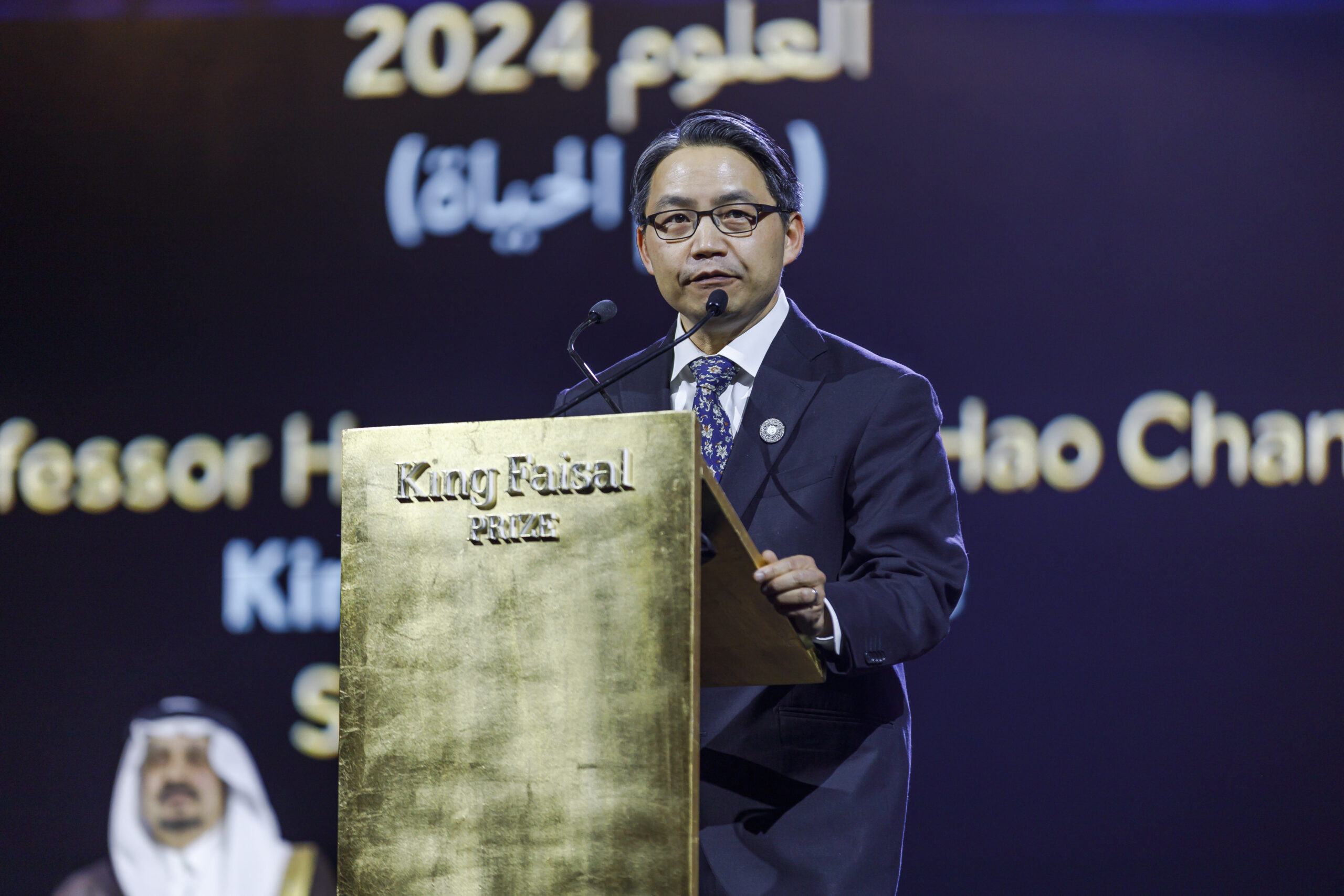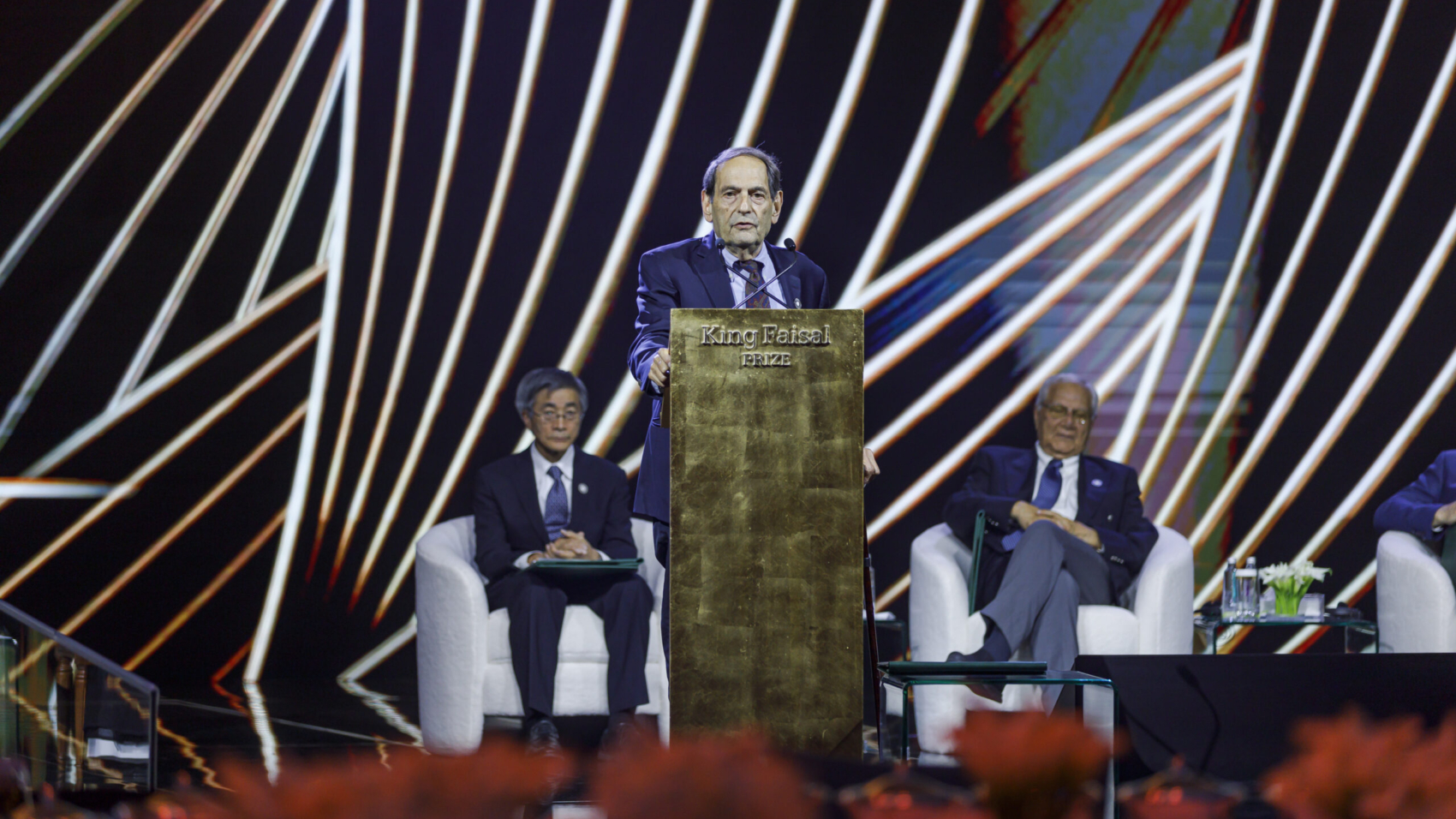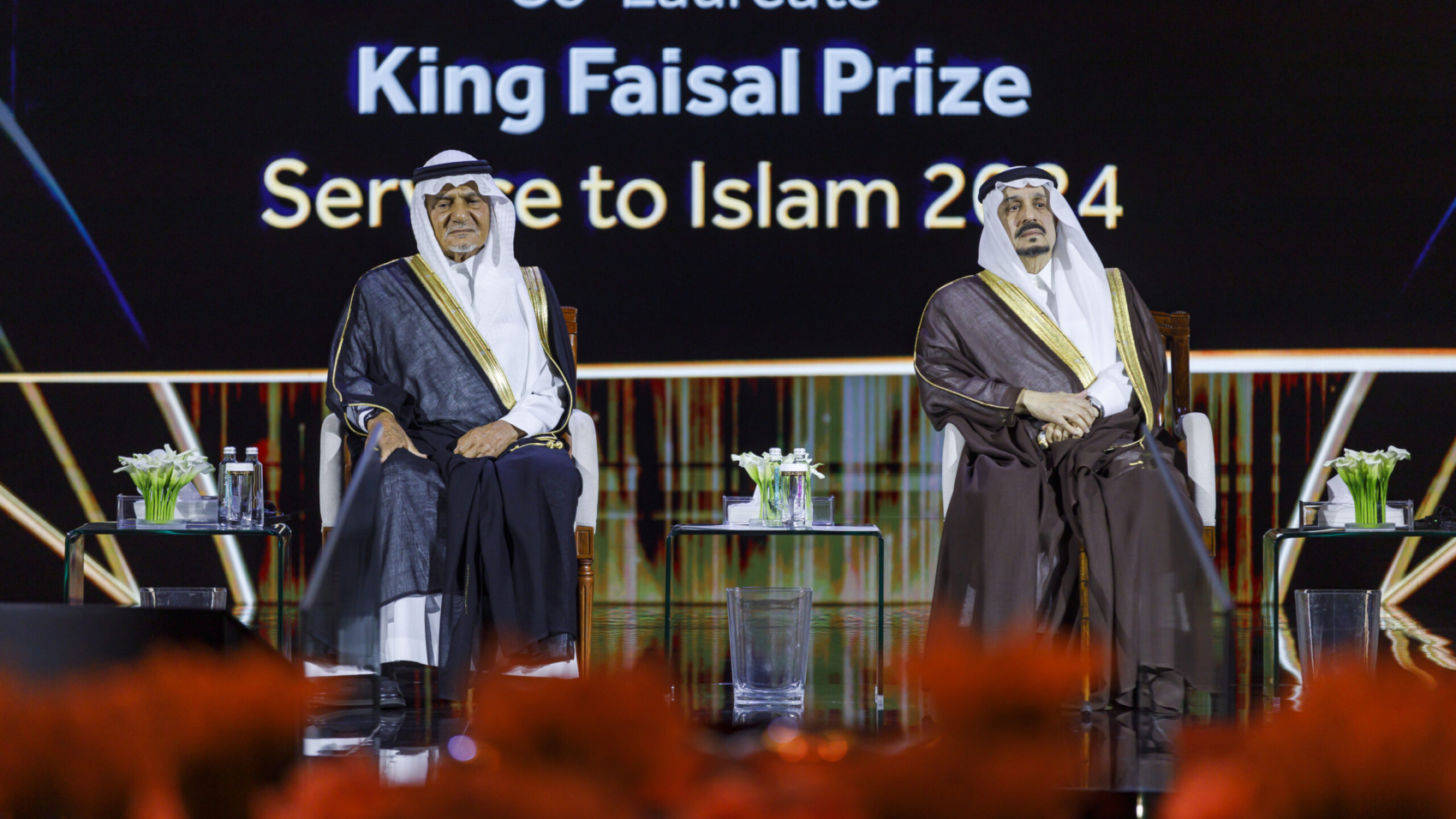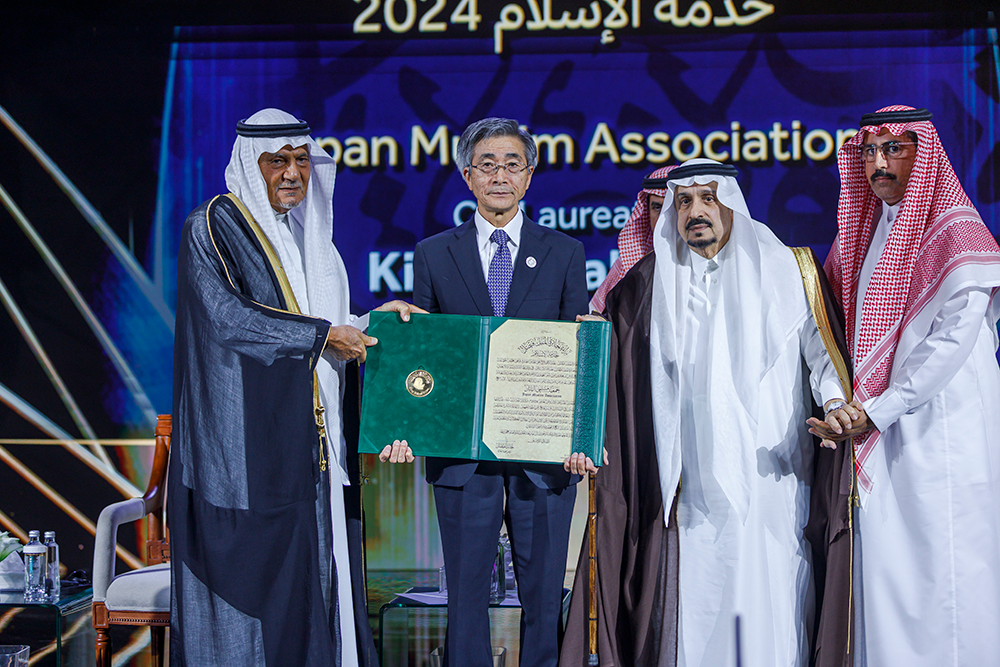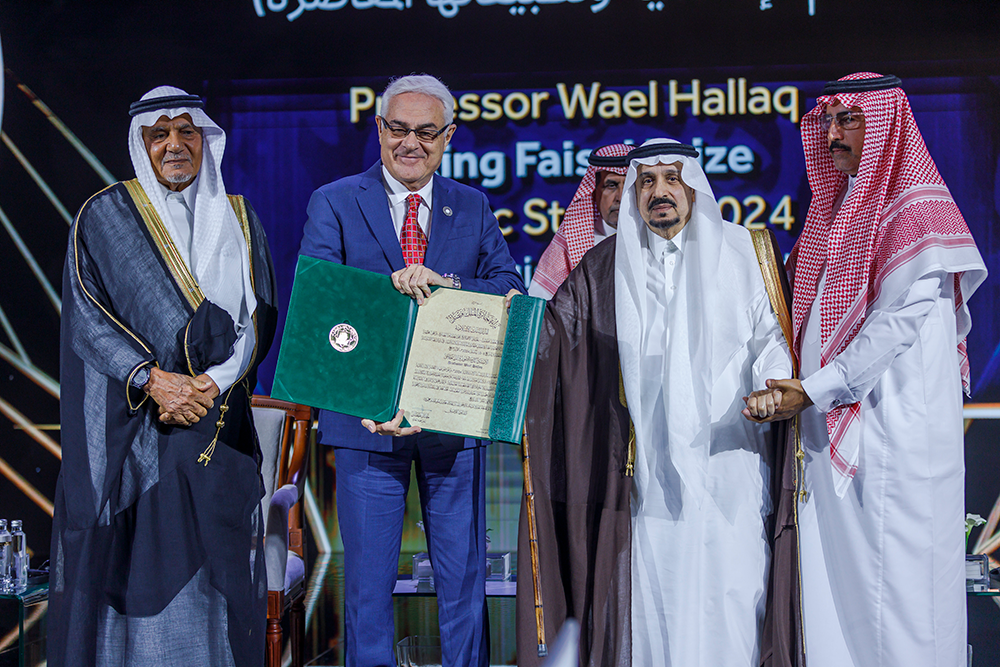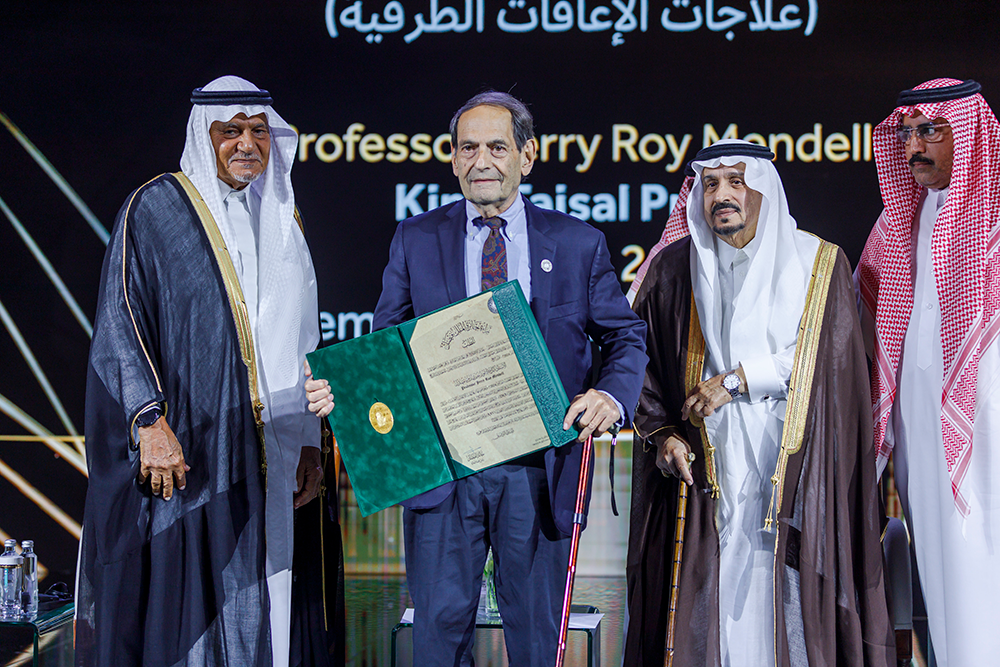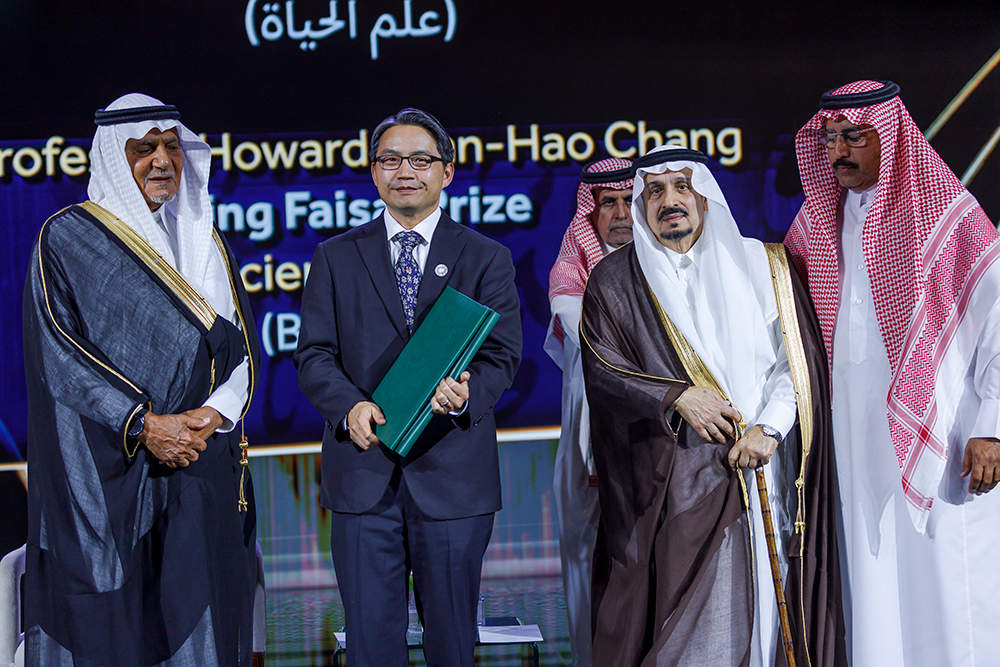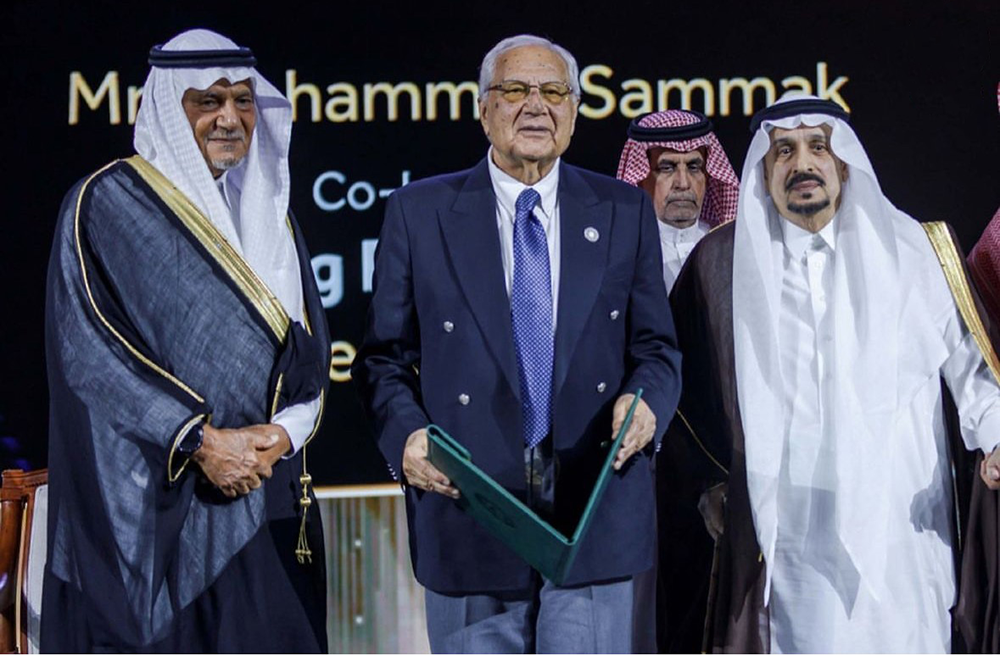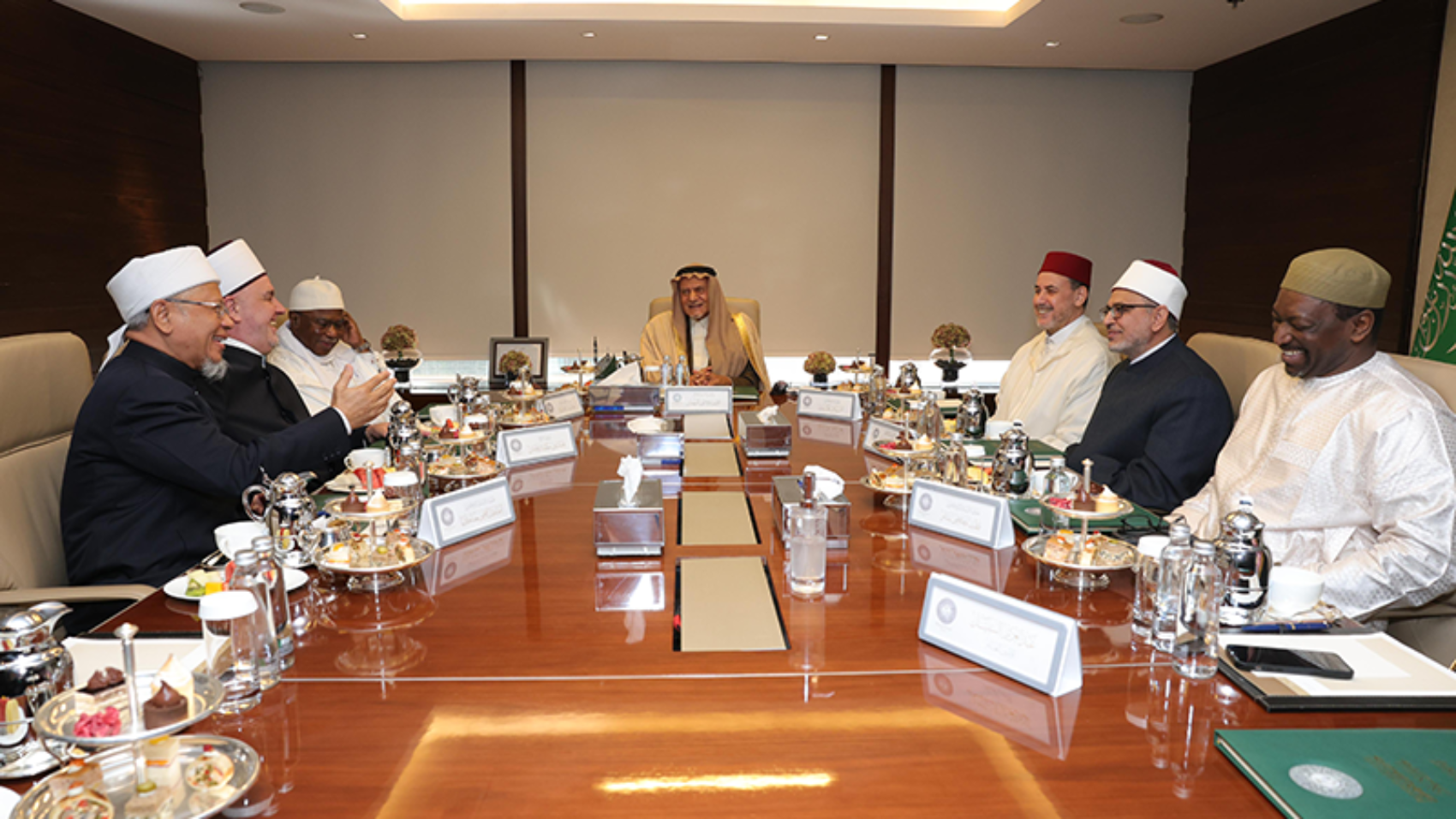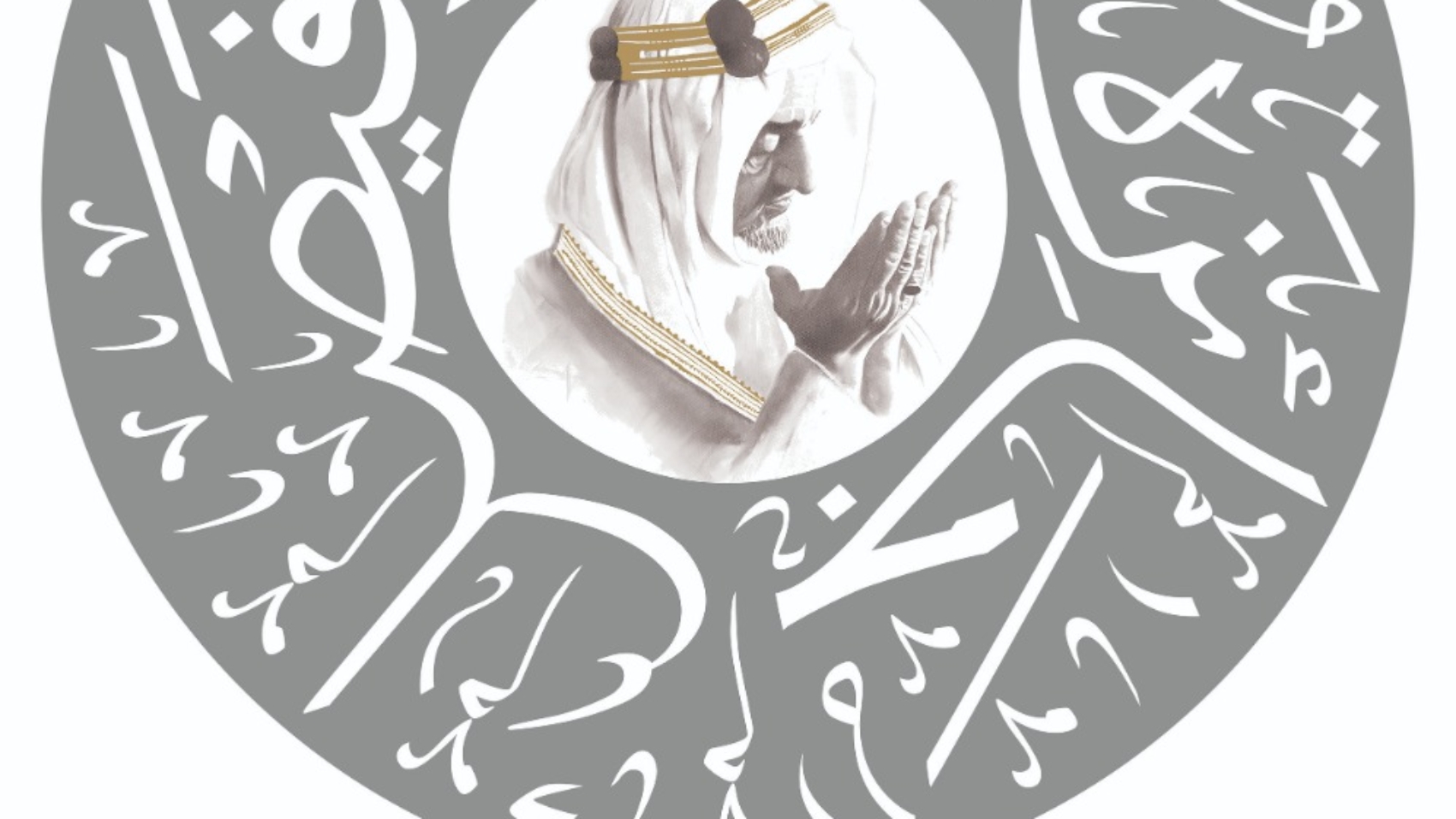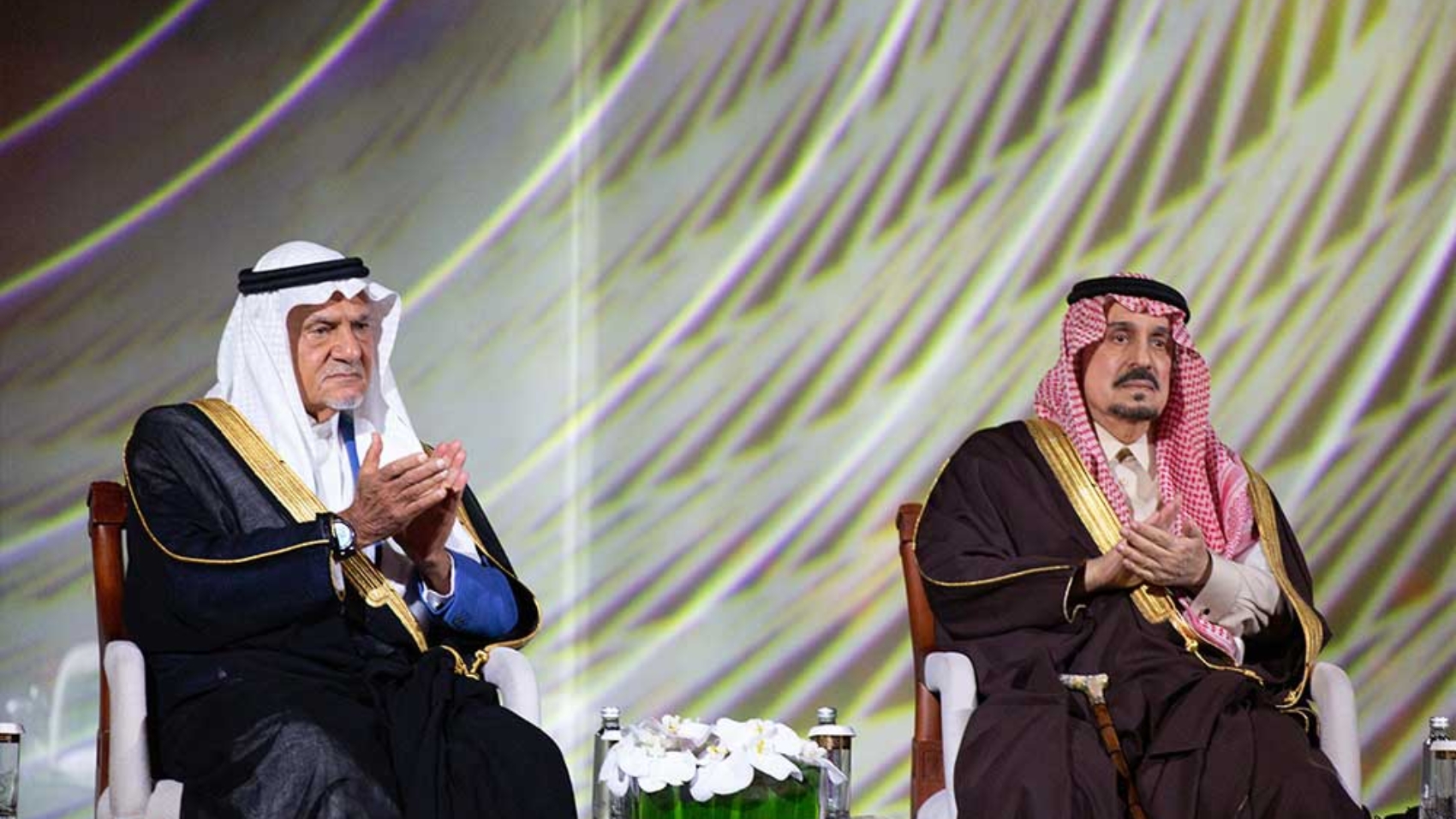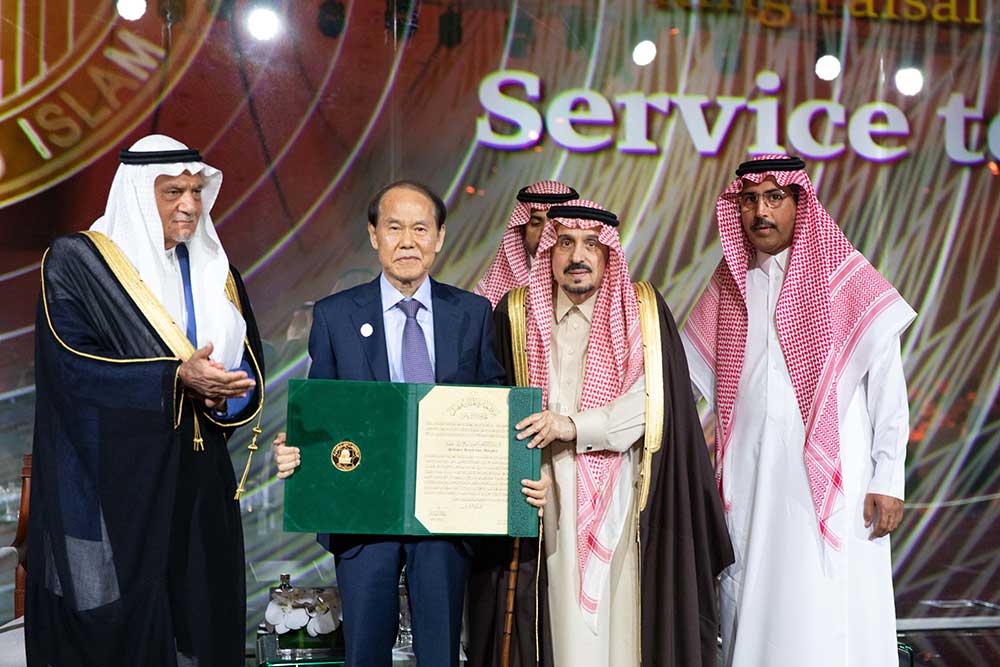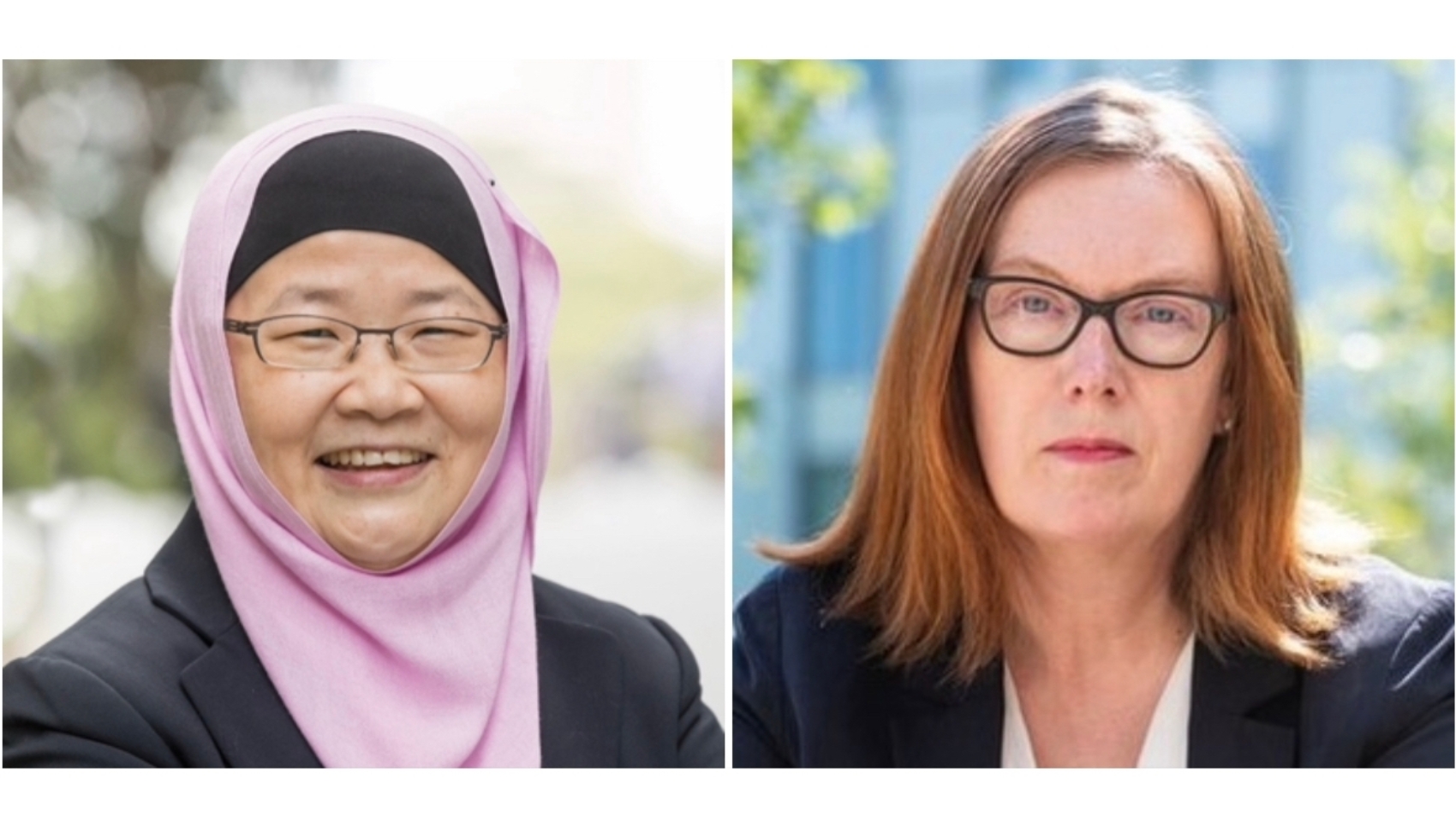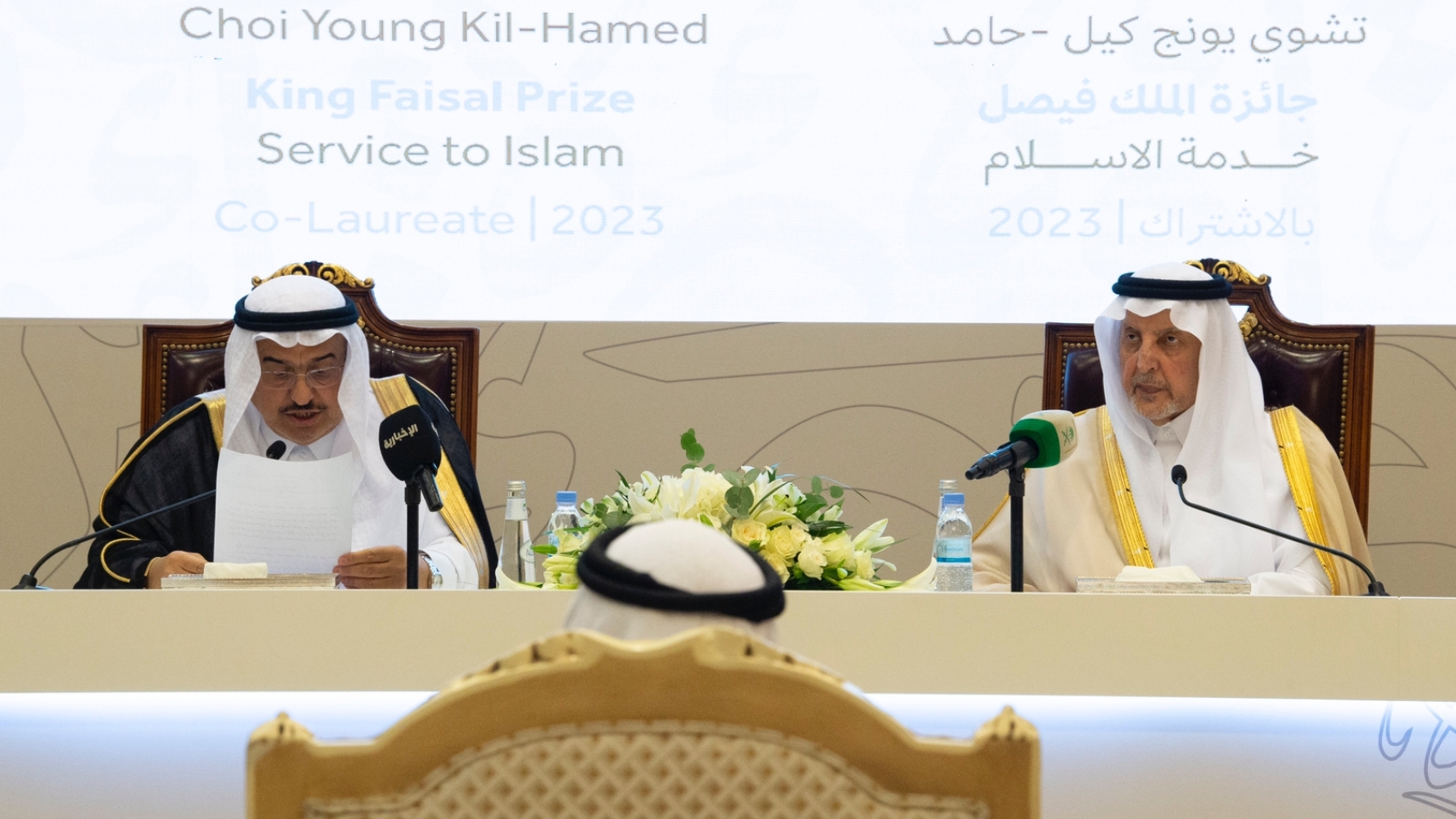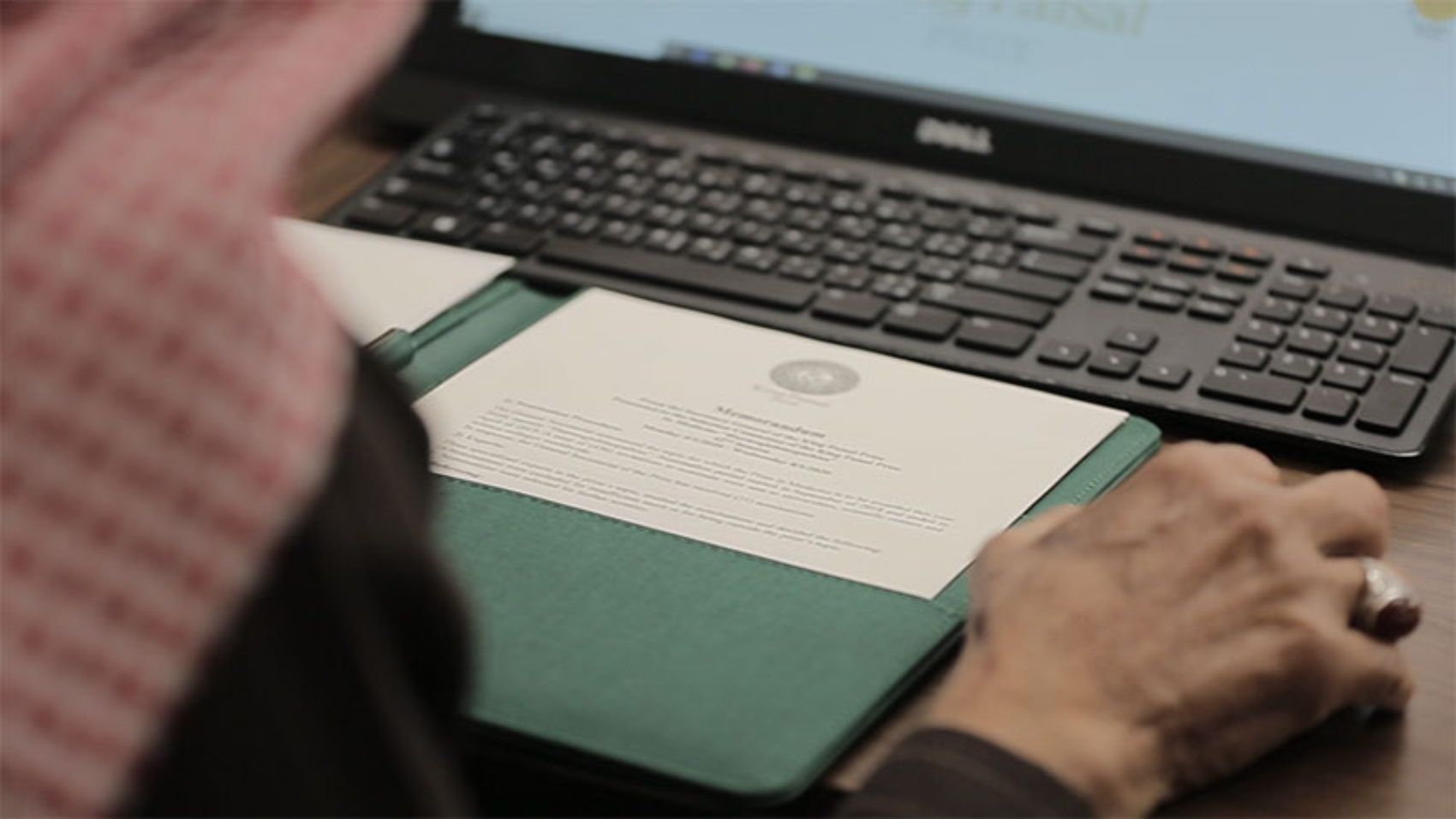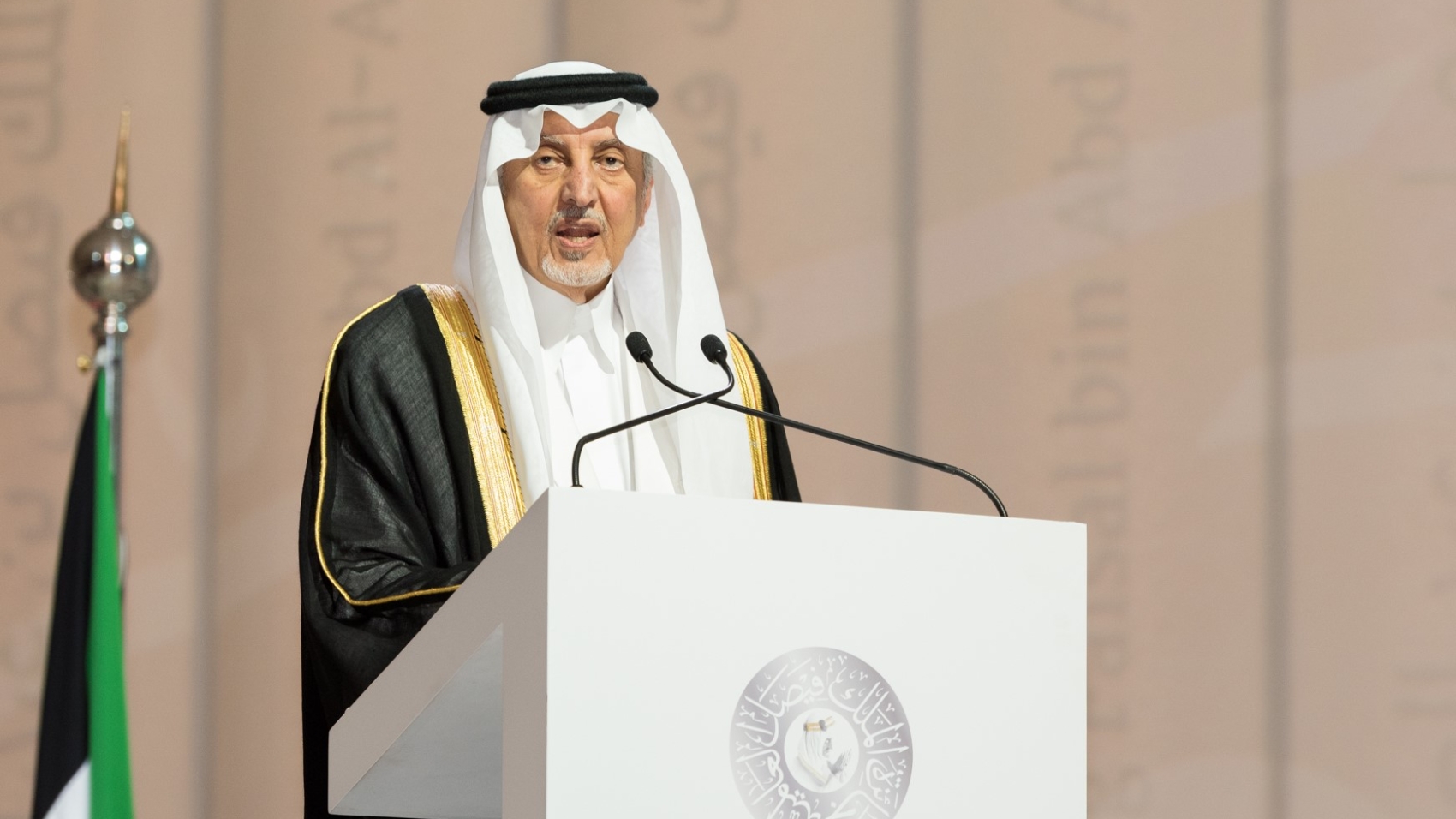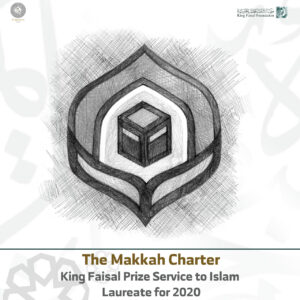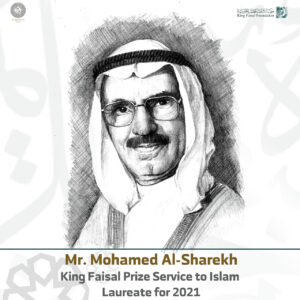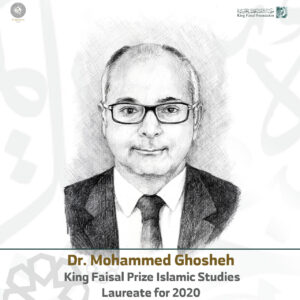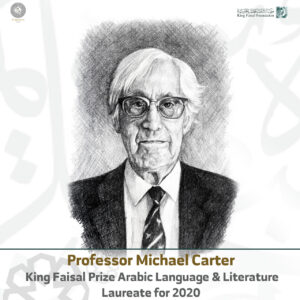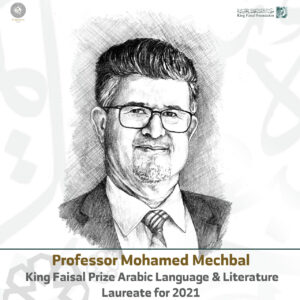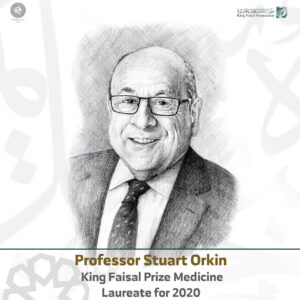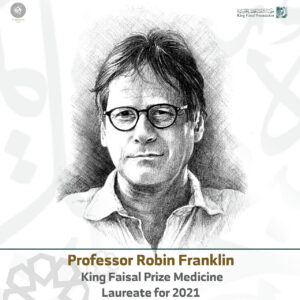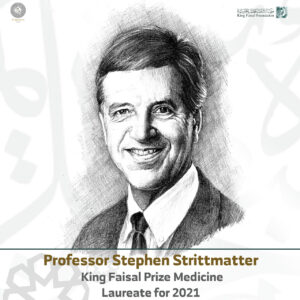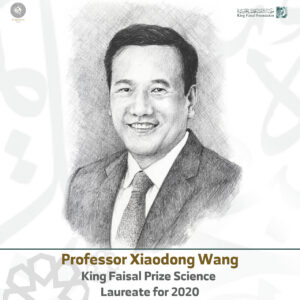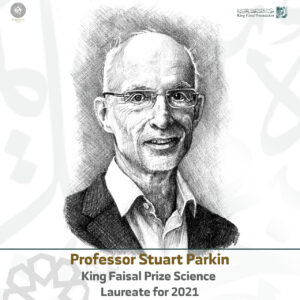During its 46th session, King Faisal Prize Recognized Other Outstanding Figures in the Fields of Islamic Studies, and Service to Islam
Riyadh, Saudi Arabia – April 22, 2024
During the 46th session of King Faisal Prize on April 22, exceptional accomplishments in the fields of gene therapy for neuromuscular diseases and groundbreaking RNA discoveries were acknowledged. Professor Jerry Mendell was awarded the Medicine Prize for his groundbreaking contributions to the screening, early diagnosis, and treatment of neuromuscular disorders, notably spinal muscular atrophy (SMA) and Duchenne muscular dystrophy (DMD). Professor Howard Chang received the Science Prize for unveiling the intrinsic role of long non-coding RNAs in gene regulation and function, a previously overlooked area of study.
Through innovative gene therapy approaches, Professor Mendell, the Director of Gene Therapy Center at Nationwide Children’s Hospital and Curran Peters Chair in Pediatric Research, has revolutionized treatment strategies, offering hope to countless patients worldwide.
Spinal muscular atrophy (SMA), once considered a leading genetic cause of infant mortality, has seen a paradigm shift in treatment due to Professor Mendell’s pioneering efforts. By utilizing gene therapy to deliver crucial genes to affected cells, he has significantly improved outcomes for patients, leading in 2019 to the first-ever FDA-approved gene therapy treatment for pediatric SMA patients (Zolgensma®).
In addition to his work in SMA, Professor Mendell’s research has extended to Duchenne muscular dystrophy and limb-girdle muscular dystrophy, showcasing the versatility and efficacy of gene therapy in addressing a spectrum of neuromuscular conditions. Genetic mutations in Duchenne muscular dystrophy (DMD) patients hinder the production of dystrophin, a crucial protein for muscle health. While initial symptoms primarily affect skeletal muscles, DMD progresses to impact cardiac and respiratory functions. Gene therapy offers a solution by addressing this genetic anomaly, allowing the body to produce dystrophin and halt muscle degeneration. In June 2023, the U.S. Food and Drug Administration approved the first treatment for pediatric DMD patients aged 4-5, utilizing a pioneering gene therapy co-developed by Professor Mendell and Professor Louise Rodino-Klapac, a former post-doctoral researcher in Mendell’s lab. This therapy involves a single injection, delivering a micro-dystrophin gene within an adeno-associated virus serotype (AAVrh74), facilitating the transfer of missing or corrected genes to cells.
He has played a significant role in clinical trials targeting different forms of Limb-Girdle Muscular Dystrophy (LGMD), characterized by muscle weakness affecting the shoulders, upper arms, hips, and upper legs. One study particularly concentrated on LGMD2B, demonstrating that a single injection of a gene therapy vector effectively restored damaged muscle fibers, mitigating degeneration, and improving muscle function.
Professor Mendell boasts a portfolio of more than 400 published papers, a testament to his prolific contributions to the field. In acknowledgment of his achievements, he was honored with election to the National Academy of Medicine in 2021. The American Society of Gene and Cell Therapy bestowed upon him the prestigious Translational Science Award named in his honor. Furthermore, in 2017, Science Magazine recognized his groundbreaking work in SMA Gene Therapy with the esteemed Breakthrough Achievement Award. His accolades also include numerous other awards and invitations to deliver honorary lectures at esteemed institutions.
In his acceptance speech during the ceremony, Professor Mendell said, “The principles of the award that reflect King Faisal’s intent to relieve human suffering are consistent with my own views and lifetime achievements. I have done everything I could do to improve the quality and prolong life for patients afflicted with neuromuscular diseases.”
On the frontier of molecular biology, Professor Howard Chang, a physician-scientist and Professor of Dermatology and Genetics, and Virginia and D.K. Ludwig Professor of Cancer Research at Stanford University, has been awarded King Faisal Prize for Science in Biology. Professor Chang’s elucidation of the role of long non-coding RNAs (lncRNAs) in gene regulation has revolutionized our understanding of cellular processes and disease mechanisms.
Through innovative genome-wide methodologies, Professor Chang has uncovered the intricate interplay between lncRNAs and gene expression, shedding light on fundamental biological processes underlying development, cancer, and aging. Despite not encoding proteins, lncRNAs are crucial for controlling the timing and amount of protein production, impacting the overall function and behavior of cells.
Within each human cell, a remarkable feat of organization unfolds: 2 meters of DNA are tightly packed into a nucleus merely 10 microns in size. This dense packaging renders most of the DNA inaccessible, except for the active DNA elements crucial to the cell’s functioning and reading. Identifying these accessible elements unveils invaluable insights into the cellular “software.” His groundbreaking techniques lie in mapping chromatin—the substance constituting chromosomes, comprised of DNA and associated proteins governing genome structure and gene expression. This has provided unprecedented insights into the regulatory mechanisms governing gene expression, paving the way for novel therapeutic interventions and precision medicine approaches. One technique is the Assay of Transposase Accessible Chromatin, employing the Tn5 transposase enzyme to efficiently copy and paste DNA. This revolutionary technique has yielded a million-fold enhancement in sensitivity and a hundred-fold improvement in mapping speed for regulatory DNA—the epigenome—in human cells.
As the founder of the RNA Medicine Program at Stanford University, Professor Chang continues to spearhead efforts to translate RNA science into tangible clinical applications, furthering the promise of RNA-based therapeutics in treating a wide range of diseases. Prof. Chang’s honors include the NAS Award for Molecular Biology, Outstanding Investigator Award of the National Cancer Institute, Paul Marks Prize for Cancer Research, Judson Daland Prize of the American Philosophical Society, and the Vilcek Prize for Creative Promise. His work was honored by the journal Cell as a Landmark paper over the last 40 years and by Science as “Insight of the decade”.
In his acceptance speech during the ceremony, Professor Chang said, “Our research asked a basic question: how do cells decide when and where to switch different genes on? How do these decisions get passed over time? Our studies led us to a new class of RNAs, called long noncoding RNAs, that help cells remember their cell fates. Our understanding of the gene switches led to an understanding of how inherited genetic differences cause disease, especially immune diseases. This understanding also helped to tackle mutations that arise in cancer.”
In addition to honoring advancements in medicine and science, King Faisal Prize also recognized exemplary contributions in Islamic Studies and Service to Islam. Professor Wael Hallaq, among the top 500 scholars in Islamic Studies globally, was awarded the Islamic Studies prize for his groundbreaking contributions in guiding the development of Islamic legislation and challenging the narrative of closing of the gate of ijtihad – interpreting Islamic texts – gained prominence, reshaping accepted paradigms in the field.
The Japan Muslim Association and Mr. Mohammad El Sammak were honored for their exemplary leadership in serving Islam and humanity. The Japan Muslim Association is a pioneering Islamic organization for Japanese Muslims, renowned for its historic translation of the Holy Quran into Japanese, and its defense of Muslims’ affairs in Japan. And, Mr. Mohammad El Sammak, a pioneer in dialogue and bridge-building between different faiths, has made a lasting impact in interfaith dialogue over five decades. He was awarded for his effective contributions to conferences exploring Islam’s relationship with other beliefs and his leadership in institutions dedicated to tolerance and peace.
King Faisal Prize for Arabic Language & Literature for 2024 on the topic of “Non-Arab Institutions and their Endeavors to Promote Arabic” was withheld due to nominated works not elevating to the criteria of the prize.
Since 1979, King Faisal Prize in its 5 different categories has awarded 295 laureates who have made distinguished contributions to different sciences and causes. Each prize laureate is endowed with USD 200 thousand; a 24-carat gold medal weighing 200 grams, and a Certificate inscribed with the Laureate’s name and a summary of their work which qualified them for the prize.
